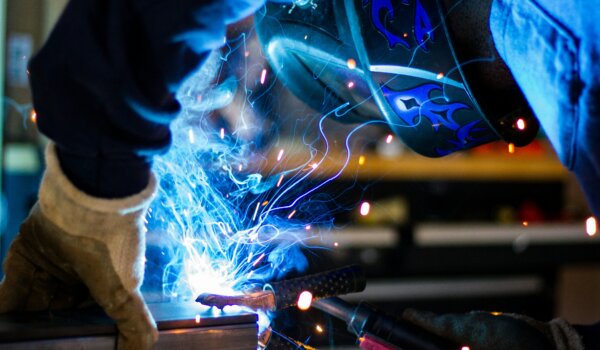On 20 January 2021, history was written when Kamala Harris was sworn in as the first female Vice President of the United States of America. It was a historic and inspiring moment, and there is no better time than now to talk about gender equality and women’s empowerment.
It was exactly 5 years ago, in January 2016, that the United Nations’ Sustainable Development Goals (SDGs) came into force, with SDG 5 dedicated to gender equality and the achievement of empowering all women and girls as part of the 2030 Agenda of Sustainable Development. Since then, the world has come a long way, but a lot remains to be done.
Studies have shown that as of the end of last year, only 47% of women participated in the global labor force, in comparison to 74% of men. Globally, only one in three businesses are owned by women, and these companies tend to be small and often operate in the informal sector. Additionally, women-owned firms are vastly underrepresented in international trade, with only 15% of those companies exporting from their country.
It is safe to say that to this day, international trade is dominated by men, and economic gender differences are visible in low, middle and high-income countries alike. This inequality is caused by a set of mechanisms and structures that have been in place for decades and are driving factors contributing to geopolitical and economic instability.
The potential of women is vastly underutilized. Research has shown that the participation of women in the economy, and specifically in trade, has a significant impact on a country’s GDP. To put it bluntly: when more women work, economies grow. Currently, women make up half of the world’s population, but only contribute to 37% of the global GDP. It is obvious that improving gender equality results in higher employment levels, increases productivity and positively impacts GDP per capita. It is estimated that a gender-equal world economy would add over £20T (USD28T) to the global GDP.
But not only that. It has been proven that women participating in the economy have a positive impact on many aspects of an economic ecosystem – women hire women, successful women become role models for the younger generation, and more gender diversity leads to a more diverse well of ideas and multi-faceted viewpoints that encourage innovation. Empowered women focus on education for their children, and open doors and increase access for other women.
What then are the main economic constraints and barriers that hinder women’s participation in trade and the wider economy? There are too many to count them all. But to focus on the main ones, challenges that women around the world are facing include access to finance, networks, information, job opportunities, and decision-making positions. Additionally, roadblocks for women exist in pay inequalities, unemployment, the dominance of patriarchal conventions (at least in some regions of the world) and overrepresentation in unpaid work such as child-care and household.
At the same time, it is not only external factors that present a barrier to female representation. More intrinsic issues that stem from society and upbringing lead to challenges women might struggle to overcome: the infamous imposter syndrome, lack of confidence and assertiveness, and the constant strive for perfection.
Two examples show just how low the gender parity ratio still is across the world: only 5% of Fortune 500 companies are led by a female CEO, and only 1% of public tenders are won by female-owned companies. These challenges cannot be overcome without a joint effort and global initiatives of private and public institutions: Governments who shape policy and issue tenders; international organisations that design and implement programmes for the economic empowerment of women; companies from SMEs to multinational corporations who hire more women and iron out the gender pay gap; angel and impact investors who focus on female entrepreneurs with gender-focused loans and investments.
And then there are consultancies like OCO Global Global – specialists in trade and investment – who have developed market acceleration and capacity building programmes in developing countries, adopting a gender-focus and specifically target women in trade and female entrepreneurs. As part of our portfolio, OCO Global has worked on various gender initiatives, notably two current capacity building programmes in Tunisia and Jordan.
In Jordan, OCO Global together with local partners trains female coaches and entrepreneurs in e-commerce and access to online markets. In Tunisia, OCO Global has developed and implemented an Export Facilitation Programme, with one project specifically focusing on capacity building for female entrepreneurs. With the support of local gender experts, the women are given training in management and leadership, marketing and sales, as well as financial literacy and access to finance, which helps strengthening and scaling up their businesses. An important aspect of the project is supporting the women in growing their network on a national and international level, whereas the overall aim of the programme is to successfully guide the companies towards export to the UK and other international markets.
At the same time, OCO Global has launched its own internal women’s network at the end of 2020. With offices around the world, the network aims to connect our female employees, to give them a voice, to provide a platform to foster exchange and discussions, and to offer personal and professional career development through webinars and talks.
There are many global initiatives with the specific goal of women economic empowerment, among them professional networks such as the Trade Experettes, the Organization of Women in International Trade, and the Association of Women in International Trade. Regular conferences are held by organisations such as the World Bank, UNCTAD (United Nations Conference of Trade and Development), the International Trade Center via the SheTrades initiative, the WTO (World Trade Organisation), or academic institutions. Building strong international networks is one of the most powerful tools to foster female participation, build liaisons and collaborations, and help women gain market access.
It is indisputable that more opportunities for women need to be created through changing norms, providing capacity building and fostering exchange. Policies around the world need to improve to make standards such as free trade agreements more gender-responsive. Multilateral declarations have to focus even more on sustainable development to support countries in a way that they can achieve equal opportunities for both genders in education, employment, and entrepreneurship. Governments must reduce trade barriers for women, and businesses need to increase the inclusion and empowerment of women.
In short, it needs transformative action taken by all players in the global economy to create an enabling environment that can lead to systemic change and an economic system that is more inclusive and equal, where women and men have the same opportunities and access to market. As we have seen, economic empowerment of women leads to more prosperity and positive impacts on the ecosystems they operate in, and the world in general.
This blog can only scratch the surface of the discussion around female entrepreneurship and women in trade. However, I hope these thoughts serve as the beginning of a wider discussion around diversity, inclusion and gender equality. It is the start of a series of blog posts and podcasts around the topic of women in trade and female entrepreneurship. The first podcast following this blog post is a very interesting discussion about the challenges and opportunities of female entrepreneurs in Tunisia.
With that said, look out for future publications, and please feel free to contact me if you want to learn more about OCO Global’s gender initiatives.
Barbara Grunewald is a Senior Project Manager in Trade & Investment and Gender Specialist for OCO Global. She co-chairs the OCO Global Women’s Network and is part of the instigator group of the Trade Experettes. Barbara leads the gender programme in Tunisia, contributes to the Jordan project, and has throughout her career designed and implemented gender projects in Brazil, Cuba, Guatemala, Bolivia and the Dominican Republic. She has lived and worked in Europe, North and South America and is fluent in English, German, Spanish, Portuguese and French.



